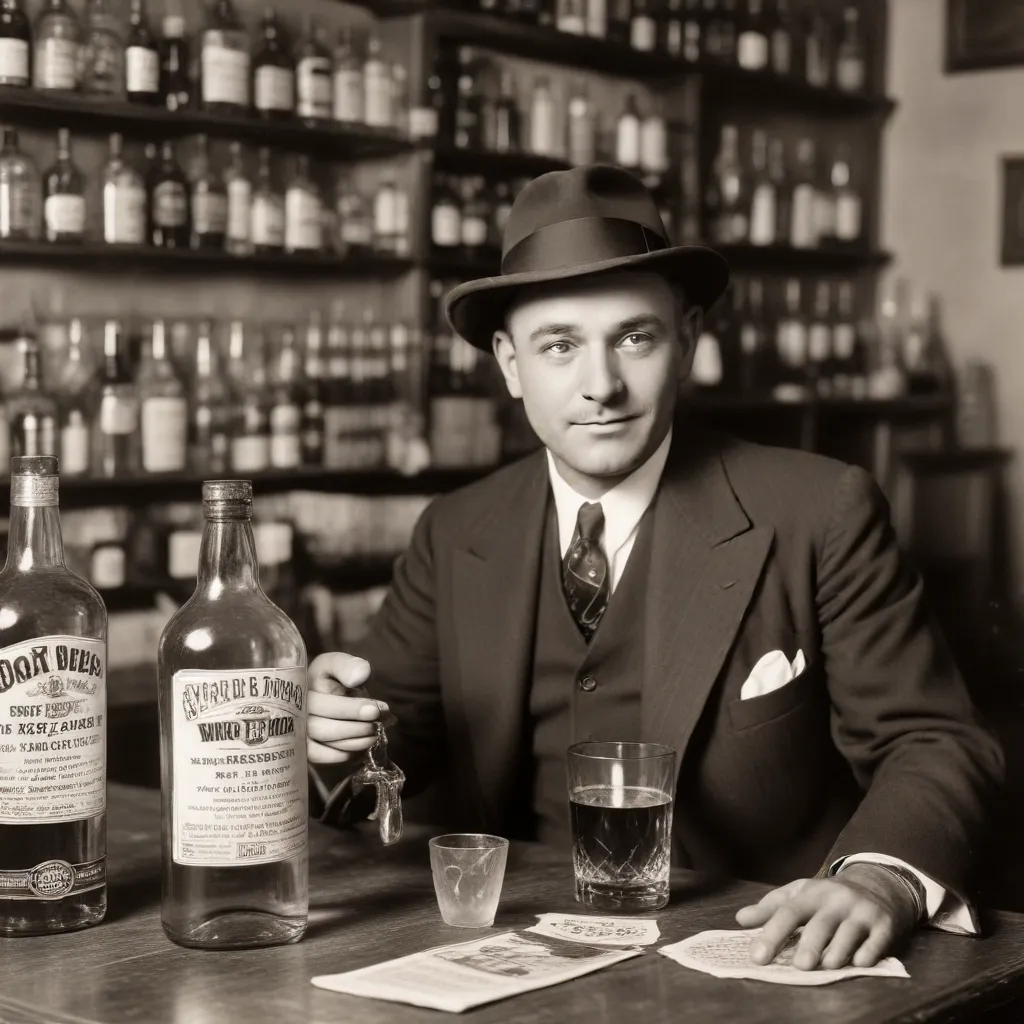
Nearly a Century Later, We Are Still Fighting Alcohol Prohibition…
It’s been nearly a century since the repeal of Prohibition, yet the legacy of this ill-fated experiment in alcohol regulation continues to shape the landscape of the wine and spirits industry today. From criminalization to economic disruption, the impacts of Prohibition have reverberated through the decades, leading to an ongoing battle to reform outdated laws and create a more equitable system for producers, distributors, and consumers alike.
The Rise and Fall of the Prohibition Era
The roots of Prohibition can be traced back to the early 19th century, when a growing temperance movement, fueled by concerns over the societal impacts of excessive alcohol consumption, began to gain momentum. This movement, led by organizations like the Women’s Christian Temperance Union (WCTU), eventually culminated in the ratification of the 18th Amendment in 1919, which prohibited the “manufacture, sale, or transportation of intoxicating liquors” throughout the United States.
The immediate effects of Prohibition were both dramatic and unintended. Rather than curbing alcohol consumption, the ban simply drove the industry underground, spawning a thriving black market and the rise of organized crime. Gangsters like Al Capone seized control of the illicit liquor trade, using violence and corruption to maintain their stranglehold on the supply. Meanwhile, the government’s attempts to enforce the law through measures like the Volstead Act proved largely ineffective, leading to a surge in home-brewing, smuggling, and other creative means of circumventing the ban.
Economically, Prohibition wrought havoc, costing the government billions in lost tax revenue and decimating industries like brewing, distilling, and viticulture. Countless businesses were forced to shut down, and the resulting unemployment and economic hardship only served to exacerbate the social ills that Prohibition was intended to address.
Societal Impacts of Prohibition
The unintended consequences of Prohibition were felt far and wide, extending beyond the realm of economics and crime. The criminalization of alcohol consumption had a profound impact on social and cultural norms, as the speakeasies and underground drinking establishments that proliferated during this era became hubs of illicit activity, often associated with organized crime and corruption.
This era also saw the rise of a vibrant “cocktail culture,” as resourceful bartenders and mixologists developed innovative ways to disguise and conceal their wares. The iconic imagery of flappers, jazz music, and the glamorous allure of the Roaring Twenties is inextricably linked to this period of societal upheaval and the subversive enjoyment of forbidden pleasures.
Lessons Learned from Prohibition
The eventual repeal of Prohibition in 1933, marked by the ratification of the 21st Amendment, signaled a turning point in American attitudes towards alcohol regulation. The failure of the 18th Amendment to achieve its intended goals, coupled with the widespread social and economic damage it inflicted, served as a cautionary tale about the dangers of overly restrictive policies and the importance of finding a balanced approach to managing the production, distribution, and consumption of alcoholic beverages.
Today, the legacy of Prohibition continues to shape the ongoing debates and discussions surrounding alcohol policy and regulation. While the federal government has maintained a level of oversight and control over the industry, the primary responsibility for regulating alcohol has largely fallen to individual states, leading to a patchwork of laws and regulations that can vary widely from one jurisdiction to the next.
Alcohol Policy and Regulations
Contemporary alcohol laws in the United States reflect the complex and often contentious history of Prohibition. At the federal level, the Bureau of Alcohol, Tobacco, Firearms and Explosives (ATF) is responsible for enforcing laws related to the production, distribution, and taxation of alcoholic beverages. Meanwhile, state-level regulations governing the sale, licensing, and distribution of alcohol can vary considerably, with some states maintaining strict control over the industry, while others have adopted a more laissez-faire approach.
The influence of the alcohol industry itself, particularly powerful lobbying groups like the Distilled Spirits Council of the United States (DISCUS) and the Beer Institute, has also played a significant role in shaping the policy landscape. These organizations have been instrumental in advocating for the interests of producers, distributors, and retailers, often pushing back against efforts to enact more stringent regulations or increase taxes on alcoholic products.
The Fight Against Prohibition
Despite the repeal of the 18th Amendment, the legacy of Prohibition continues to cast a long shadow over the alcohol industry. Grassroots movements and advocacy groups, such as the Alcohol Justice organization, have emerged to challenge the status quo and push for more progressive policies that prioritize public health, consumer safety, and social equity.
These efforts have taken various forms, from legal challenges to existing regulations to legislative initiatives aimed at modernizing alcohol laws. In recent years, there have been successful efforts to ease restrictions on the direct-to-consumer sales of wine and spirits, as well as the loosening of regulations surrounding the operations of craft breweries, distilleries, and wineries.
The Cultural Legacy of Prohibition
The cultural impact of Prohibition is perhaps the most enduring aspect of this pivotal era in American history. The speakeasies, gangsters, and illicit glamour of the Roaring Twenties have become deeply embedded in the popular imagination, inspiring countless films, novels, and works of art that continue to captivate audiences to this day.
Beyond the realm of popular culture, Prohibition has also left an indelible mark on our collective attitudes towards alcohol consumption. The stigma and moral judgments that were once associated with drinking have gradually given way to a more nuanced understanding of the role that alcoholic beverages can play in social, culinary, and even health-conscious contexts.
As the nation approaches the centennial of the repeal of Prohibition, it is clear that the legacy of this experiment in alcohol regulation continues to shape the industry, the law, and the cultural landscape. While much progress has been made in creating a more balanced and equitable system, the fight to overcome the lingering effects of Prohibition remains an ongoing battle, one that will likely continue to unfold in the years and decades to come.
